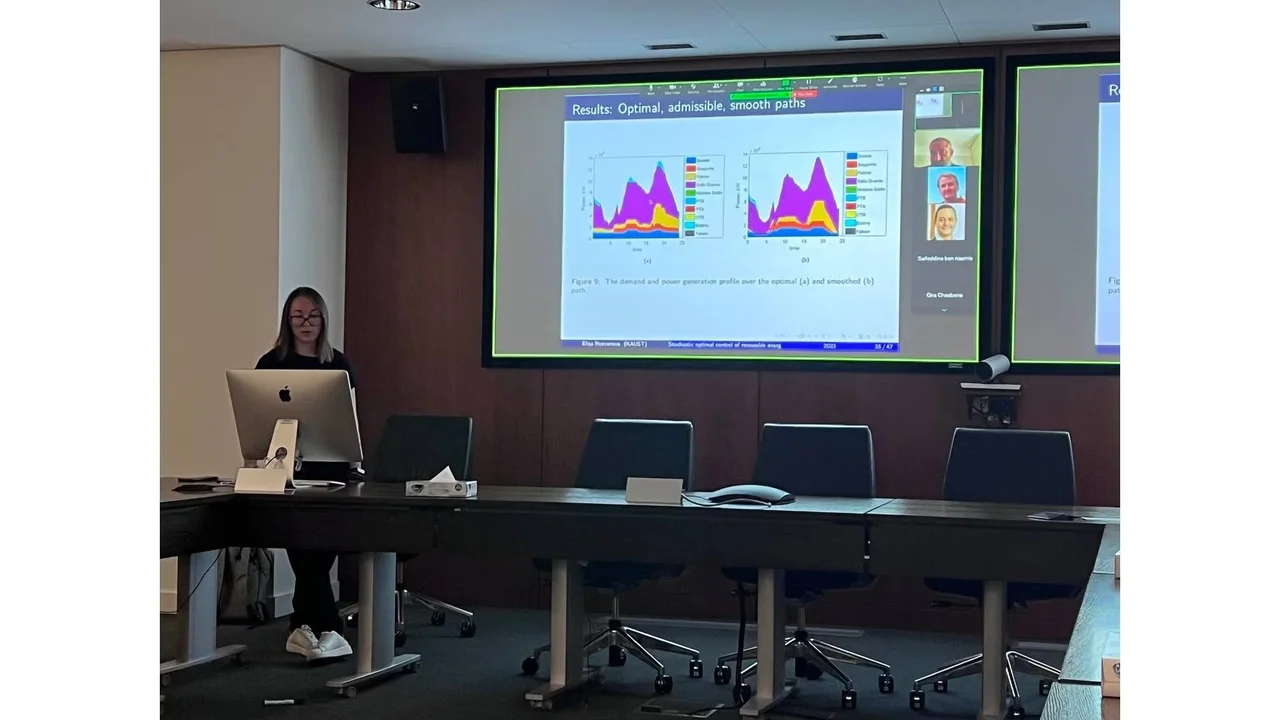
Eliza Rezanova successfully defended her PhD proposal
About
In a remarkable display of academic excellence, On July 26, 2023, Eliza Rezanova successfully defended her PhD Proposal entitled “Stochastic optimal control of renewable energy”.
Committee Chairperson:
Prof. Raúl Tempone, AMCS, KAUST
Committee Members:
Prof. Daniele Boffi, AMCS, KAUST
Prof. David Bolin, AMCS, KAUST
Abstract:
Considering the large-scale development of renewable energy resources globally, and the high variability of these sources, the control optimization (scheduling) of energy supply systems is becoming increasingly crucial for the efficient use of production facilities to balance the instantaneous power demand. In this work, we consider a setting characterized by a coupled power supply system controlled exclusively by a single provider (monopoly), and composed of a cascade of hydropower systems (dams), fossil fuel power stations, and a storage capacity modeled by a single large battery. We first propose a novel mathematical modeling framework for problems arising from short-term continuous control of large power systems, where the coupled power system is modeled through continuous (stochastic) differential equations. Our modeling framework is original since previous works in this context formulate the problem using a large discrete optimization system, where one does not take advantage of the system’s structure and lead to NP-hard mixed-integer programming problems.
Moreover, cascaded hydropower generators introduce time delay effects to the controls, making the use of classical dynamic programming algorithms not possible. To overcome this undesirable feature and efficiently construct a near-optimal policy, we design a primal-dual strategy by introducing a Lagrangian relaxation technique over continuous-time constraints. This approach yields a convex, non-smooth, optimization problem to define the optimal dual variables (Lagrangian multipliers), and which is solved numerically using a limited memory bundle method. Given the obtained values of the Lagrangian multipliers, we solve an associated sequence of parallelizable (independent) simpler Hamilton-Jacobi-Bellman partial differential equations, instead of solving a large non-convex problem. Moreover, to better control the dual optimization error, we design an adaptive refinement strategy for the Lagrangian multipliers. Finally, for the constructed admissible primal solution, we employ a penalization technique to smoothen the controls and achieve a sufficiently small desired duality gap. Our analysis and numerical results based on the Uruguayan power system showcase the efficiency of our mathematical models and numerical approach.
Biography:
Eliza Rezvanova earned a degree in Mathematical methods in economics from Ufa State Petroleum Technological University. Her Master's thesis focused on Optimal policies for battery operation and design via stochastic optimal control of jump diffusions within the Applied Mathematics and Computer Science department at King Abdullah University of Science and Technology. Eliza's research interests include Partial differential equations, Numerical methods for PDEs, Stochastic processes, and Stochastic optimal control.
